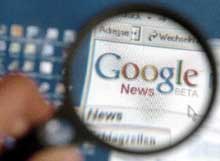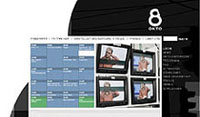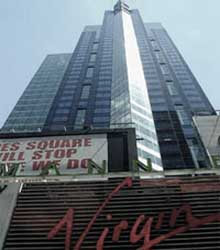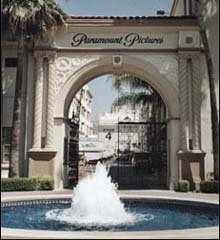How to
teach Institution
Media texts
don’t just appear from nowhere. They take time
– and sometimes a lot of money – to produce.
Some are made by individuals working alone, just for
themselves or their family and friends. However, most of
the media texts we consume are produced and distributed by
groups of people, often working for large corporations.
Media are big business: the most popular movies and TV
shows make large profits. Media are also global in scale:
the same movies, records and TV formats are available in
countries around the world.








Most media
messages are organized to gain profit and/or
power. Much of the world’s
media were developed as money-making enterprises and
continue to operate today as commercial businesses.
Newspapers and magazines lay out their pages with ads
first; the space remaining is devoted to news.
Likewise, commercials are part and parcel of most TV
watching.
What many people do not know is that what's really being sold through commercial media is not just the advertised products to the audience -- but also the audience to the advertisers! The real purpose of the programs on television, or the articles in a magazine, is to create an audience (and put them in a receptive mood) so that the network or publisher can sell time or space to sponsors to advertise products-- usually in a way that entices us to want what we really don’t need! Sponsors pay for the time based on the number of people the producers predict will be watching. And they get a refund if the number of actual viewers or readers turns out to be lower than promised.
But the issue of message motivation has changed dramatically since the Internet became an international platform through which groups and organizations-- even individuals-- can attempt to persuade others to a particular point of view. The Internet provides numerous reasons for users of all ages to be able to interpret rhetorical devices, verify sources and distinguish legitimate online sources from bogus, hate or ‘hoax’ websites. And with democracy at stake almost everywhere around the world, citizens in every country need to be equipped with the ability to determine both economic and ideological “spin.”
Read a summary of the Key Questions
and some Examples for Students
What many people do not know is that what's really being sold through commercial media is not just the advertised products to the audience -- but also the audience to the advertisers! The real purpose of the programs on television, or the articles in a magazine, is to create an audience (and put them in a receptive mood) so that the network or publisher can sell time or space to sponsors to advertise products-- usually in a way that entices us to want what we really don’t need! Sponsors pay for the time based on the number of people the producers predict will be watching. And they get a refund if the number of actual viewers or readers turns out to be lower than promised.
But the issue of message motivation has changed dramatically since the Internet became an international platform through which groups and organizations-- even individuals-- can attempt to persuade others to a particular point of view. The Internet provides numerous reasons for users of all ages to be able to interpret rhetorical devices, verify sources and distinguish legitimate online sources from bogus, hate or ‘hoax’ websites. And with democracy at stake almost everywhere around the world, citizens in every country need to be equipped with the ability to determine both economic and ideological “spin.”
Read a summary of the Key Questions
and some Examples for Students
Buckingham, David: Questioning the Media: A Guide for Students.
Images: Kronen Zeitung, Vienna
Walt Disney Pictures Logo
Napster
Orf Zentrum Künigelberg, Vienna
Bertelsmann/ Virgin Times Square New YOrk
Okto - community television Vienna
Paramount Pictures